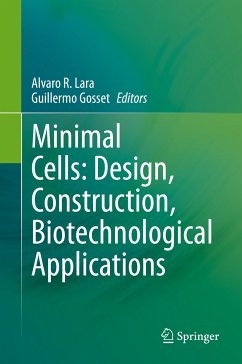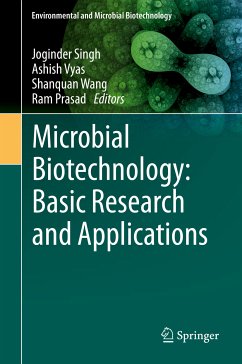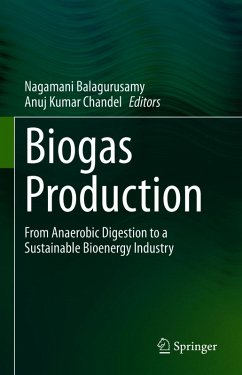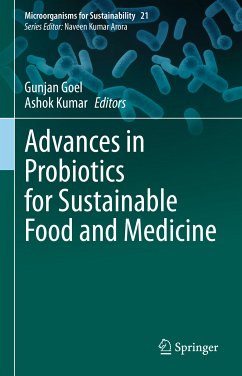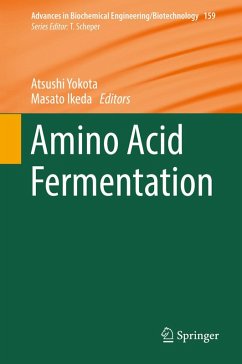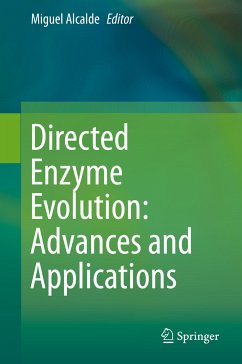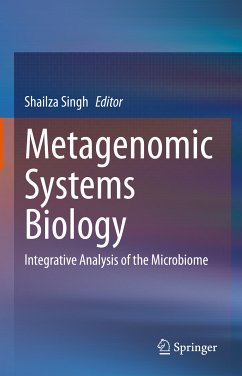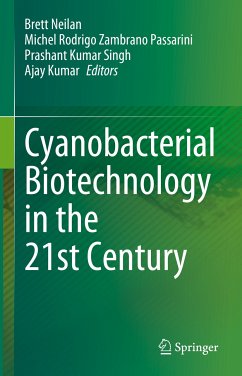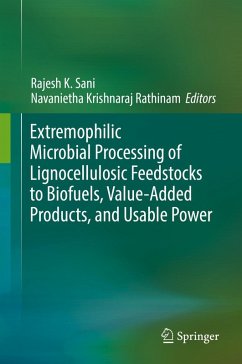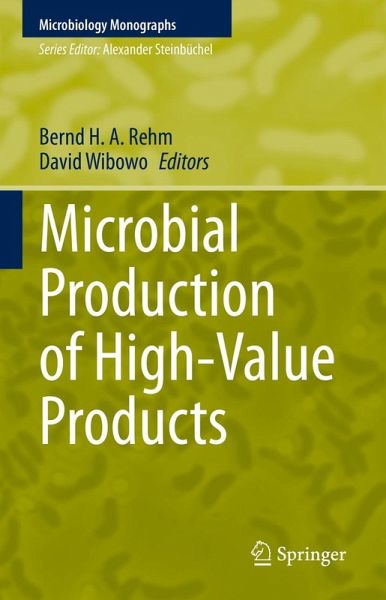
Microbial Production of High-Value Products (eBook, PDF)
Versandkostenfrei!
Sofort per Download lieferbar
72,95 €
inkl. MwSt.
Weitere Ausgaben:

PAYBACK Punkte
36 °P sammeln!
This edited volume emphasizes how microorganisms have become a reliable pillar of biotechnology. The authors discuss advances in synthetic biology and genetic engineering that have made it possible to reprogram the microbial cellular capabilities. This enables an economically viable production of high-value products at an industrial level.The first part of the book provides an overview of synthetic biology and genome editing tools for engineering microbial cell factories in modern fermentation. Readers also learn how high-throughput bioprocessing methods are used to recover and purify microbia...
This edited volume emphasizes how microorganisms have become a reliable pillar of biotechnology. The authors discuss advances in synthetic biology and genetic engineering that have made it possible to reprogram the microbial cellular capabilities. This enables an economically viable production of high-value products at an industrial level.
The first part of the book provides an overview of synthetic biology and genome editing tools for engineering microbial cell factories in modern fermentation. Readers also learn how high-throughput bioprocessing methods are used to recover and purify microbial products.
The remaining parts of this book explore the implementation and challenges of these upstream and downstream processing techniques for manufacturing high-value products. Cost-effectiveness and quality-control are key factors, when discussing the production of low-molecular-weight products, biopharmaceuticals, biopolymers and protein-based nanoparticles.
This book is a valuable resource for biotechnologists both in the industry and in academia.
The first part of the book provides an overview of synthetic biology and genome editing tools for engineering microbial cell factories in modern fermentation. Readers also learn how high-throughput bioprocessing methods are used to recover and purify microbial products.
The remaining parts of this book explore the implementation and challenges of these upstream and downstream processing techniques for manufacturing high-value products. Cost-effectiveness and quality-control are key factors, when discussing the production of low-molecular-weight products, biopharmaceuticals, biopolymers and protein-based nanoparticles.
This book is a valuable resource for biotechnologists both in the industry and in academia.
Dieser Download kann aus rechtlichen Gründen nur mit Rechnungsadresse in A, B, BG, CY, CZ, D, DK, EW, E, FIN, F, GR, HR, H, IRL, I, LT, L, LR, M, NL, PL, P, R, S, SLO, SK ausgeliefert werden.



